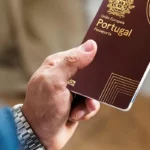
Also known as the “Visa for Remote Workers,” the visa is available to highly skilled professionals who either work remotely as employees or operate as self-employed freelancers.
Italy’s Digital Nomad Visa grants a one-year residency with the option to renew and offers access to the country’s high quality of life, business opportunities, and cultural heritage.
This guide covers everything you need to know about the Italian Digital Nomad Visa, including who qualifies, the required documents, application steps, costs, and validity.
This is more of what we will cover:
What is Italy's Digital Nomad Visa?

To qualify, applicants must have at least six months of experience in their field and be highly skilled, either as freelancers or remote workers.
This Italian visa is divided into two categories: digital nomads, who are freelancers, consultants, or other independent specialists, and remote workers, who are company employees capable of performing their work entirely remotely.
Applicants must provide proof of a three-year university degree, a government-licensed profession, or a high professional qualification. They must also submit an employment contract with a foreign company or a business agreement with clients outside Italy for at least one year.
Global Citizen Solutions’ Global Intelligence Unit has a Global Digital Nomad Report that ranks countries based on factors like internet speed, cost of living, safety, and quality of life for remote workers. It highlights the best destinations for digital nomads, with around 65 countries now offering some form of digital nomad visa. Italy ranks 17th in the report, making it a competitive option for remote workers looking to live and work abroad.
Benefits of the Italy Digital Nomad Visa
Italy is an attractive destination for digital nomads seeking a balance of work and quality of life. From its breathtaking landscapes to its rich cultural heritage and affordable cost of living, Italy offers several advantages for remote workers from all around the world.
Here are some of the key benefits of being a digital nomad in Italy:
- Extended stay: The visa allows digital nomads to stay in Italy for up to one year, with the possibility of renewal.
- Access to the Schengen Area: The Digital Nomad Visa provides freedom to travel within the Schengen zone without needing additional visas, enabling easier movement across European countries.
- Family-friendly: The visa also allows applicants to bring close family members, ensuring a balanced work-life environment while living abroad.
- An inexpensive way to obtain a second residency: Unlike other types of visas, there is no need to invest in Italy.
- Access to healthcare and education: As a Digital Nomad Visa holder, you and your family gain the right to high-quality education and public healthcare.
- Path to EU citizenship: EU citizenship is possible after ten years of permanent residency in Italy.
- Tax benefits: New tax residents can take advantage of special tax regimes.
- ETIAS exemption: Starting in mid-2025, Digital Nomad Visa holders will be exempt from the ETIAS requirement for entering ETIAS member countries.
- The Italian lifestyle: The work-life balance in Italy allows digital nomads to enjoy the country’s amazing cuisine, and history-filled cities while focusing on career growth.
Digital Nomad vs Remote Worker
As highlighted, the Italian Digital Nomad Visa distinguishes between two types of applicants: digital nomads and remote workers. While both work remotely, there are key differences in how they operate.
A digital nomad is a self-employed freelancer or consultant who works remotely while traveling. They have multiple clients and are not tied to a single employer. Examples include writers, designers, and software developers.
On the other hand, a remote worker is a company employee who works online but has a fixed job with one employer. They receive a stable salary and company benefits, but their employer is based in another country
Aspect | Digital Nomad | Remote Worker |
Employment Type | Self-employed, freelancer, or consultant | Employee of a foreign company |
Work Setup | Works for multiple clients or runs their own business | Works for a single employer |
Income Source | Various clients, projects, or business earnings | Salary from one company |
Contract Requirement | Business agreements with clients | Employment contract with a foreign company |
Flexibility | High—chooses own projects and clients | Moderate—must follow employer’s work structure |
Eligibility Requirements for the Italy Digital Nomad Visa
The Italian Digital Nomad Visa is for highly skilled professionals whose jobs require a post-secondary degree or at least three years of training or experience.
Digital Nomad Visa applicants must meet the general government criteria, including demonstrating the necessary education, professional background, or expertise for remote work in Italy.
- Be a non-EU or non-EEA national.
- Must be at least 18 years old.
- Hold a clean criminal record.
- Show proof of a lease, rental agreement, or deed in the applicant’s name that is valid for the duration of the visa.
- Provide a letter or certificate of travel medical insurance showing coverage for medical expenses of at least €30,000.
- Proof of legal income
- Applicant must meet the minimum income requirements.
- An employment contract showing a salary that equals or exceeds that required by the collective contracts negotiated by the relevant Italian national union and that cannot be below the median annual salary as calculated by ISTAT (the Italian National Institute of Statistics).
- Letter from employer stating that the employer has not been convicted in the past five years of any crimes related to the facilitation of illegal immigration, the exploitation of minors for work purposes, the violation of labor laws, or other crimes listed under comma 5-bis of article 22 of the Testo Unico Sull’Immigrazione.
- A bachelor’s, master’s, or doctorate must be recognized by CIMEA or a Declaration of Value.
- Licensed professionals (e.g., architects, engineers, teachers) need certification from an Italian Authority and may need a license.
- A high-level qualification requires five years of proven experience with official documents from past employers.
- ICT executives and specialists need only three years of experience in the past seven years.
Italy Digital Nomad Visa Minimum Income Requirements in 2025
- €24,789 per year (€ 2,066 per month).
- If you come with your spouse, the income increases to €34,087 per year (€ 2,841 per month) plus €1,550 per year for every child.
Documents Needed for the Italy Digital Nomad Visa
The documents required for the Italian Digital Nomad Visa include:
- Application form – Completed and signed.
- Passport – Must be valid; non-citizens must also provide a residence permit.
- Two passport-size photos – Recent and in the required format.
- Proof of residence – Document showing physical residence in the consular district.
- Criminal record check – No prior convictions.
- Health insurance covers at least €30,000 per year, valid in Schengen countries.
- Proof of accommodation – Lease, rental contract, or property deed in the applicant’s name, valid for the visa’s duration.
- Proof of qualifications – Must meet one of the following:
- A recognized bachelor’s, master’s, or doctorate degree (via CIMEA or a Declaration of Value).
- A certification from the Italian Authority for regulated professions.
- At least five years of professional experience (three years for IT executives/specialists).
- Work experience – At least six months of prior experience in the field, proven by tax returns, invoices, pay slips, or employer letters.
- Proof of employment – Contract for at least one year (for employees) or proof of client contracts (for freelancers).
- Proof of income – Payslips, tax returns, or bank statements proving the required income level.
- Employer’s criminal record check – A letter confirming the employer has no convictions for immigration, labor, or child exploitation offenses in the past five years.
Italy Digital Nomad Visa Application Process
Italy Digital Nomad Visa holders shall enter Italy and request the Digital Resident Permit. The permit is valid for one year and renewable every year as long as you prove you are working remotely in Italy for a foreign company and have the minimum required Income. You must apply for your Residence Permit within eight working days of entering Italy by going personally to the Police headquarters (Questura) where you intend to live.
Here is a detailed application process:
- Fill Out the Application Form – Complete the Self-Employed Visa application form, carefully following all instructions.
- Set an Appointment – Schedule an appointment at the Italian Embassy or Consulate in your country to submit your application, provide biometric data, and attend an interview.
- Prepare Your Documents – Gather and organize all required documents, ensuring any necessary translations and Apostille certifications are completed.
- Submit Your Application – Attend your appointment and provide all required paperwork.
- Obtain the Digital Nomad Visa – If approved, receive a one-year visa.
- Travel to Italy – Enter the country within the visa’s validity period.
- Apply for a Residence Permit—Within 8 working days of arrival, apply at the local police headquarters (Questura). If arriving from a Schengen country, visit Questura within two days to get a passport stamp.
- Apply for Family Reunification – After obtaining your residence permit, apply to bring your family through the Questura or Consulate.
- Register Your Residence – Update your residence details at the Italian Office of Vital Statistics (Anagrafe).
- Renew Your Residence Permit – Extend your permit before it expires.
- Apply for Permanent Residence – After 5 years of legal residence, you can request a permanent residence permit.
- Apply for Italian Citizenship – After 10 years of legal residence, you can apply for an Italian passport.
Italy Digital Nomad Visa Fees
- Payment receipt for the € 30.46 postal bulletin for printing the electronic document. This payment should be made at a post office.
- Receipt of payment of the € 50.00 postal bulletin, which is a contribution to the issuance of the residence permit. The payment should be made at a post office.
- A € 16.00 revenue stamp.
- Non-refundable application fee of €116.
Italy Digital Nomad Visa Processing Time
The processing time of the Italy Digital Nomad Visa is expected to take 30 to 60 days from the date of application submission. However, the visa process can take up to 120 days.
Family Members on a Digital Nomad Visa
When living in Italy, a digital nomad or remote worker can apply for a family visa to bring their spouse and children under 18 to join them. This includes a spouse’s child from a previous marriage or a child born out of wedlock, as long as the other parent agrees to the visa issuance.
As of 2024, digital nomads or remote workers are not able to sponsor children over 18 or their parents to live with them in Italy, even if these individuals are financially dependent on them. The sponsorship process starts in Italy at the Questura, where the digital nomad or remote worker applies for the residency permit within the first eight working days of arrival.
Taxes for the Italy Digital Nomad Visa
Digital nomads working from Italy are generally subject to income tax on any earnings from activities conducted within the country, regardless of their residence status. Additionally, freelancers will need to obtain a VAT number. Once the Police issue a resident permit, it will be sent to the Italian Tax Authority (Agenzia delle Entrate), which will monitor any potential tax violations. This system ensures that digital nomads contribute to Italy’s tax system while working remotely, even if they aren’t permanent residents.
Nonetheless, your tax obligations for the Italy Digital Nomad Visa depend on your stay and income sources. If you stay less than 183 days, you’re a non-resident and only taxed on Italian income. If you stay more than 183 days, you’re considered a tax resident and taxed on worldwide income.
Path to Citizenship with the Italy Digital Nomad Visa
The Italy Digital Nomad Visa does not directly lead to citizenship, but it can be a stepping stone. Here’s the general path:
- Temporary Residence: You’ll initially be granted a temporary residence permit for the Digital Nomad Visa. This permit is typically valid for one year but can be renewed.
- Permanent Residency: After residing in Italy for five years under legal residency status, you can apply for permanent residency. This includes meeting certain language and integration requirements.
- Citizenship: You can apply for Italian citizenship after ten years of legal residence in Italy. The period can be shortened to five years if you are married to an Italian citizen.
Throughout this process, you must maintain a stable income, complying with residency requirements, and contributing to Italy’s social systems are crucial for successful citizenship applications.
Alternative Route to Italian Residency

To qualify, applicants must invest in one of the following:
- €250,000 – Investment in an innovative Italian startup
- €500,000 – Investment in an Italian company
- €1 million – Donation to a public interest project (culture, education, immigration management, research, etc.)
- €2 million – Investment in Italian government bonds.
Unlike the Digital Nomad Visa, the Golden Visa offers a pathway to permanent residency and, eventually, Italian citizenship after ten years of legal residence. It also allows visa-free travel within the European Union, making it attractive to investors looking for greater mobility and long-term settlement options in Italy.
How Can Global Citizen Solutions Help You?
Global Citizen Solutions is a boutique migration consultancy firm with years of experience delivering bespoke residence and citizenship by investment solutions for international families. With offices worldwide and an experienced, hands-on team, we have helped hundreds of clients worldwide acquire citizenship, residence visas, or homes while diversifying their portfolios with robust investments.
We guide you from start to finish, taking you beyond your citizenship or residency by investment application.

Frequently Asked Questions about Italy Digital Nomad Visa
Does Italy have a Digital Nomad Visa?
Yes, Italy has a Digital Nomad Visa. It allows non-EU and non-EEA nationals to work independently from Italy. Naturally, people aspiring to obtain an Italian Digital Nomad Visa should meet the requirements and deliver the paperwork in a timely manner.
How long does it take to get the Italy Digital Nomad Visa?
The Italy Digital Nomad Visa usually takes around 1 to 2 months, depending on the consulate and the completeness of your application. Once approved, the visa will be valid for one year, with the possibility of renewal.
Is Italy good for digital nomads?
Yes, Italy is great for digital nomads. It offers a rich cultural experience, beautiful landscapes, excellent food, and a good work-life balance. The country provides access to co-working spaces, reliable infrastructure, and an attractive visa option for digital nomads.
Does Italy allow digital nomads?
Yes, Italy allows digital nomads through its Digital Nomad Visa, which enables remote workers to live and work in the country for up to one year with the possibility of renewal.
Does the Italy Digital Nomad Visa lead to citizenship?
Although the Digital Nomad Visa grants you residency rights, it does not directly lead to citizenship in Italy. However, the government has a Golden Visa program that can lead to permanent residency and citizenship.
Are there other similar visas in Europe?
Yes, you can apply for the Malta Digital Nomad Visa, the Portugal Digital Nomad Visa, and the Spain Digital Nomad Visa.
What are the top European cities for digital nomads in 2024?
The top European cities for digital nomads in 2024 are:
- Lisbon, Portugal
- Barcelona, Spain
- Berlin, Germany
- Budapest, Hungary
- Tallinn, Estonia
- Milan, Italy

 Patricia Casaburi
Patricia Casaburi 
